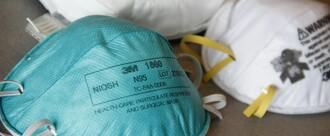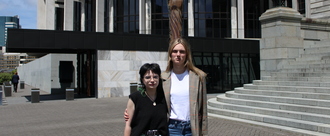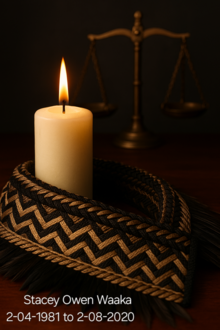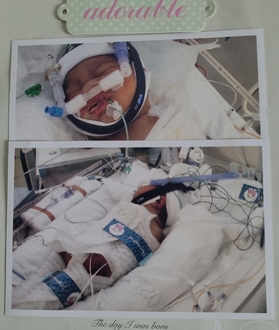-
OPEN LETTER: Call for Peace and Sovereignty for Cuba and the world!Washington has moved to cut off Cuba’s access to imported oil and other energy resources, leading to increased blackouts andshortages of basic human necessities. “There will be no more oil or money going to Cuba - Zero!” US president Trump announced on January 11. This callous approach is in line with decades of US hostility, including a 65-year economic embargo that has caused immense harm and has been repeatedly and overwhelmingly condemned in votes at the United Nations General Assembly. It threatens starvation, a policy which the 1998 Rome Statute, which established the International Criminal Court, classified as a war crime. New Zealand has signed and ratified the Rome Statute. Cuba’s overthrow of a US-backed dictatorship in 1959 has earned it the ire of thirteen US presidents. But Cuba is no threat to the United States. Like all sovereign nations, it has the right to determine its own political, economic and social system, free from external interference and threats.Declaring Cuba’s readiness for talks with Washington, Cuban president Miguel Díaz-Canel described as “reprehensible…such an aggressive and criminal policy towards a small nation.” He asked, “What does it mean to not allow a drop of fuel to reach a country?” We recognise that any attack against Cuba is a flagrant violation of international law, the UN Charter and would undermine regional peace and stability. As a small nation New Zealand has every interest in supporting the UN Charter, which recognizes the sovereign equality of all nations and protects their independence against large countries who threaten them. You too can sign the Call for Peace and Sovereignty and say no to war and intervention. Open letter distributed by Cuba Friendship Society, [email protected] Contact Matt Robson, [email protected] Make a donation towards urgent humanitarian aid for Cuba through the New Zealand Cuba Society Account: 02-0159-0200303-0030 of 100 SignaturesCreated by New Zealand Cuba Society
-
Save State Housing in Pōneke Wellington CityWellington City should be a place where everyone has a stable, healthy and suitable home whatever their income. A place where children can grow up together and where people can put down roots near the people and places they need to thrive. Housing affects every part of our lives. The stress of short tenancies, week-to-week emergency housing grants, and the looming threat of rental increases has a major impact on people’s wellbeing and working lives. Constant moving to find housing robs whānau of the opportunity to connect with their communities. State housing has and can provide stable, affordable homes for people on lower incomes - from the first ever state house built in Miramar, to the new state housing built in Pukeahu Mt Cook. We know from our own history and from overseas, that when governments play a bigger role in building and providing decent and suitable housing, we lay the foundation for thriving communities. Yet, despite the benefits, successive governments have not built enough homes to meet the growing need in our communities. In Pōneke Wellington: • There are 621 households on the housing register for Wellington City, 585 are considered Priority A (September 2025).[1] • There are 2,766 people in severe housing deprivation in Wellington City which forces people into unsafe and unstable living arrangements.[2] • State housing provider Kāinga Ora is selling sites making this land unavailable for future public housing[3] • And, the Government has cancelled projects and paused other projects, including the 300+ units at Arlington St, Mt Cook[4] There are 400 state homes which have been cancelled in Wellington City[5], including: • Evans Bay Pde, Kilbirnie, Wellington with 30 homes that were going to be Universal Design cancelled • Ngatiapa St, Tukanae St & Rahui St, Strathmore Park, Wellington with 41 homes cancelled • Nuku St, Strathmore Park, Wellington with 28 homes cancelled • Wayside, Miramar, Wellington with 1 home cancelled • Arlington St, Mt Cook with 300 homes, foundations in the ground is pending a decision Only 3 projects continue: • Miller Place, Lyall Bay with 28 homes is proceeding and due for completion in 2027 • Kekerenga St with 3 homes is due for completion in 2026 • Coromandel St, Newtown with 11 homes is due for completion 2026 While these essential public housing developments have been cancelled, the need for decent and secure housing has increased. Downtown Community Ministry recorded a 24% increase in rough sleeping for the first 3 months of 2025 compared to the same time in 2024.[6] Wellington is fortunate that the City Council is involved in housing through Te Toi Mahana, a Community Housing Provider (with 1764 homes) and through Te Kainga housing (370 homes), and with NGO community providers like Dwell (100 tenancies) and Wellington City Mission (70+ transitional units, and rest home and residential care). Despite this, it is still not enough to meet demand and these providers have limited access to funding to build more. The Government has the obligation and the ability to fund housing to meet the needs of all. We need the Government to build more public housing, but to also make the housing they build accessible and suitable for our communities. This means supporting different types of public housing, including using the Housing First approach, which is a proven best practice for supporting whānau who have experienced long-term homelessness and have other challenges, such as mental health and addication. It means housing first, and then wrap-around services for whānau after.[7] Te Ō in Mt Cook is an example of how this is working for Wellington City public housing, through a Single Site Supported Housing model. If we leave house building to the market, we’ll keep building homes that are not accessible or suitable for our communities - with steps, narrow doorways, and bathrooms that don’t work for many. Through publically-funded housing we can support designs that work for your niece with cerebral palsy, your friend recovering from a stroke, your pregnant sister, your colleague with a broken leg, or your granddad who now uses a walking frame. Currently, only 4% of our public housing has universal design that are suitable for a wide variety of people, while the housing register has around 19% of people in households who need accessible housing. Kāinga Ora were making commitments to building more accessible homes including the 30 universally designed homes on Evans Bay Pde that have now been cancelled. We ask the House of Representatives and Minister of Housing retain existing housing sites, keep building the promised state houses and to increase public builds at a scale that will ensure stable, permanently affordable and accessible housing for everyone who needs it. References: 1. Housing Register, MSD September 2025 2. Aotearoa Data Explorer, Severe Housing Deprivation Census 2023 Stats NZ 3. Property Sales, Kāinga Ora, 2026 4. Kāinga Ora slashes social housing in Wellington. The Post, 19 June 2025 5. Data from a spreadsheet available in this Information sheet: Project assessments and write downs, Kāinga Ora, June 2025 6. Homelessness Insights Report. Ministry of Housing and Urban Development. June 2025 7. Read more about how Housing First works with public housing in Finland here and in Aotearoa here. Pōneke Public Housing Futures is a group of everyday people in Wellington who believe secure, suitable housing is a fundamental right that must be available to everyone with a need. We are concerned that not enough public housing is being built to meet the needs of all in Wellington. Stable affordable housing is the first step needed for everyone to thrive. Currently in New Zealand only 4% of all housing is state or community housing, this is significantly lower than many other countries. We want to see a large increase so that everyone who wants a public or state house can be housed without spending months on a waiting list.116 of 200 SignaturesCreated by Pōneke Public Housing Futures
-
Protect Our Community and Tamariki: Address Roaming and Dangerous Dogs in AhiparaOur Ahipara community should not have to live in fear of roaming dogs. My kids saw a dog being attacked right in front of them — it was violent, chaotic, and traumatic. No child should have to witness that, and no Council should accept it as normal. This is not about being anti-dog. It’s about keeping our community safe, ensuring people take responsibility for their pets, and preventing harm before it happens.458 of 500 SignaturesCreated by Tyrone Biddle
-
Legalise Cannabis and Reform Drug Law in AotearoaWith over 15% of Aotearoa, and over 30% of Māori (1), having used cannabis obtained through illegal markets in 2024, the legalisation of cannabis for recreational use would clearly be beneficial to the mana, money and health of a large number of New Zealanders. It’s been over 5 years since the narrowly failed 2020 Referendum, and surveys show that a vast majority of the public is now in favour of some sort of drug law reform(2). What are the reasons that consumers, non-consumers and public advocates like New Zealand Drug Foundation(3) support the drafting and passing of new legal cannabis legislation? Firstly, in a legal market, users would have access to more information about what they are consuming as well as the potential health risks it carries, and would not be presented with the option to buy other more harmful drugs while purchasing cannabis (one of the major factors involved in the ‘gateway drug’ myth). Improving public discourse and reducing stigma would begin to restore the mana and dignity of individuals and communities that have been harmed by negative narratives around illegal drug use. From an economic perspective, in addition to an estimated $1–1.5B in tax revenue(4) from the legal market, many desperately needed safe and sustainable jobs would be created, providing better opportunities for those stuck in the dangerous and unstable world of the illegal market. With less resourcing of illegal trafficking and more resourcing of education and harm-reduction services, a legal marijuana market would create safer and healthier communities. Finally, there is the obvious issue of how cannabis users are treated by the legal system. There is a common misconception, spread most often in privileged communities, that “weed is practically legal” in Aotearoa. From 30th June 2024 to 30th June 2025 alone, 180 people were convicted for simply using or possessing cannabis(5) (not including those who possessed cannabis with intent to traffic). If that number does not seem particularly high, consider that cannabis related charges were involved in over 3600 court cases during this period(5); so cannabis prohibition, that goes against the advice of domestic experts and the view of the general public, is still being weaponised as a tool of punishment in our legal system. And of course, the most devastating effects of prohibition happen outside the courtroom, with the overpolicing of marginalised communities. A 2024 investigation by Aotearoa Justsice Watch found “concerns about improper searches” to be the most dominant theme in submissions about police conduct (6), and racial profiling causes Māori and people of colour to be more heavily targeted for warrantless cannabis searches. Recent roadside drug-testing laws use inaccurate testing methods that over-police drivers who had most recently consumed cannabis days before, and even affect prescription cannabis users (7). Even in places overseas where cannabis has been legalised, poor policing laws allow cops to harass and search citizens on suspicion of engagement in illicit dealing or production, causing much of the same profiling and violence that occurs under total prohibition. A requirement of police to use non-invasive means such as photography to capture evidence of actual illicit transactions, rather than searching private property for stashes exceeding an arbitrary legal threshold, would more effectively minimise contact between law enforcement and the communities that are most harmed by cannabis prohibition. Improved transparency around drug policing would be a step towards fairer policing, and safer communities. These reasons, and this petition, are only a partial representation of the rich and diverse perspectives that exist in support of cannabis legalisation in Aotearoa. We, the undersigned, call on the government of Aotearoa to take urgent action in acknowledging our demands and seeking wide-ranging consultation to create more fair, equal and safer cannabis legislation for Aotearoa. Sources: 1. https://drugfoundation.org.nz/news-and-reports/report-drug-use-in-aotearoa-202324 2. https://www.nzherald.co.nz/northland-age/news/nationwide-poll-shows-majority-want-cannabis-laws-relaxed/Y6QCN5T63NFMBMKYTOYV66KYRQ/ 3. https://www.rnz.co.nz/news/political/575403/decriminalising-drug-use-best-way-to-combat-rising-addiction-report-finds 4. https://drugfoundation.org.nz/news-and-reports/berl-report-shows-nz-will-be-better-off-under-legal-cannabis. 5. Ministry of Justice Cannabis Offences Table, June 2025 version, downloaded from https://www.justice.govt.nz/justice-sector-policy/research-data/justice-statistics/data-tables/ 6. https://amnesty.org.nz/new-report-mistreatment-by-police-and-prison-officers/ 7. https://drugfoundation.org.nz/news-and-reports/roadside-drug-testing-what-you-need-to-know131 of 200 SignaturesCreated by Reeferendum 2026
-
Golden Triangle by Train: Te Huia to TaurangaOver half of New Zealand’s population lives in the Golden Triangle, and it is one of the fastest-growing parts of the country — it makes sense to have a modern, safe and efficient train service between Auckland, Waikato and the Bay of Plenty. Te Huia is already showing how passenger rail can help people get to work, study, healthcare, and visit whānau without relying on long, expensive, and often dangerous road trips. Investing in passenger rail eases congestion, improves road safety, reduces emissions and supports regional growth and tourism. With major rail infrastructure already in place and the City Rail Link opening in 2026, now is the time to build on Te Huia’s foundations — not walk away from them.3,478 of 4,000 SignaturesCreated by The Future is Rail
-
Stand Against Harassment in the Name of Culture and FaithAcross Aotearoa, vulnerable communities including migrants, refugees, LGBTQIA+ people, faith groups, and tangata whenua are experiencing harm, fear, and exclusion caused by extremist groups or individuals who misuse faith, culture, or moral authority to intimidate. Misuse of haka, tikanga Māori, and religious belief as tools of intimidation violates our shared values, diminishes mana, and harms the safety and dignity of all. We call on the Government to 1. Recognise organised harassment as a serious threat and respond decisively 2. Protect public and community spaces including schools, libraries, places of worship, and community services 3. Ensure consequences for leaders and groups who repeatedly target and harass communities 4. Affirm the right of all communities to exist, gather, and practise their culture, community, and faith safely Aotearoa is strongest when difference is met with care, respect, and collective responsibility. We urge Parliament to act decisively to protect communities, uphold mana, and create a future grounded in dignity, safety, and collective care.3,370 of 4,000 SignaturesCreated by Toitū Te Aroha

-
For a Hutt Valley where everyone has a homeA stable, decent home is important for a good life. It supports our safety, our health, and ability to participate in society. It helps us build community connections through our neighbours, local schools, sports, and cultural clubs. It allows us to put down roots and have a sense of belonging. But successive governments have not done enough to make sure everyone has decent and suitable housing. They have prioritised legislation and policy that helps property investors make profits, while reducing Government’s income. They have underfunded the construction of state housing, meaning there is not enough to meet the need. This has forced many people, including people in the Hutt Valley, into severe housing need, living in unsafe, unhealthy, and insecure living situations. We have people in our community experiencing hardship because of the price of rental properties, people living in substandard and overcrowded houses or in garages, cars, or parks. The emotional and financial stress due to housing insecurity are added pressures for families and individuals who are among the most vulnerable in our community. To get onto the public housing register (waitlist), you must be in severe housing need. We have hundreds of whānau/households on the public housing waitlist for the Hutt Valley [1]. But it is clear that there is not enough housing available for them. People are often experiencing long times on the waitlist [2]. There are too few Kāinga Ora homes in the pipeline for the Hutt Valley [3], while existing Kāinga Ora homes are being put up for sale [4] and some planned constructions have been cancelled [5]. And under the Government’s Housing Investment Plan [6], no money has been earmarked for further new Kāinga Ora homes in the area. The Government has indicated that it is looking to the private market to solve the problem of unaffordable housing and housing insecurity [7]. This is unlikely to help the people on the public housing waitlist who need housing now, or to solve the ongoing issue of severe housing deprivation in our community [8]. Together we can change this. If we make state housing a priority, we can ensure that no one in our community has to experience housing deprivation and that everyone has stable, decent, appropriate housing where they can build a good life for themselves and their families. Let’s tell our local politicians that Hutt Valley people see this as an important issue for the 2026 General Election. Let’s tell our politicians that we want a commitment from them to give Kāinga Ora the resources and the direction that will enable it to get people off the waitlist and into state housing, and meet community need for housing in an ongoing way. You can send this message to our local politicians by signing the petition. Find out more about the nationwide Public Housing Futures Campaign at: www.publichousingfutures.com Contact the Hutt Valley Public Housing Futures group at: [email protected] References: [1] 489 households as at November 2025 - 371 for Lower Hutt, 118 for Upper Hutt. Source: Ministry of Housing and Urban Development [2] The average national wait time for people on the public housing register, from their application being accepted to that tenancy being activated was 165 days (5 months) as at October 2025. Source: Housing and Urban Development [3] 218 homes in the pipeline as at April 2025 - houses are either in construction or proceeding to a detailed business case. Source: Kainga Ora [4] 56 homes have been put up for sale as at September 2025 - 55 in Lower Hutt, 1 in Upper Hutt. Source: Kainga Ora [5] 58 houses cancelled as at June 2025. Source: Kāinga Ora 'Kāinga Ora takes next step in financial reset', 19 June 2025 [6] Housing Investment Plan 2025. [7] Kainga Ora Strategy 2025 – 2035, Housing minister Chris Bishop reveals new Kāinga Ora strategy | 4 February 2025 | RNZ, Housing reform in NSW and New Zealand, Chris Minns, Chris Bishop, & Peter Tulip [8] RNZ, ‘Government wants to 'flood the market' to make houses more affordable - how will that work?’, 5 July 2024. The Conversation, The billions spent on NZ’s accommodation supplement is failing to make rent affordable – so what will?, 24 April 2025. University of Auckland, The flaws in NZ's accommodation supplement, 9 May 2024.359 of 400 SignaturesCreated by Public Housing Futures Hutt Valley
-
Stop early labelling in primary school reports (2026)From 2026, primary schools will report children’s learning using national labels: Emerging · Developing · Consolidating · Proficient · Exceeding For children aged 5–7, this approach is developmentally inappropriate. Learning at this age develops unevenly, at different rates for different children, and early labels often reflect developmental readiness and support needs rather than true understanding or potential. This matters because: • Early learning is non-linear Children aged 4–7 show wide, normal variation in attention, language, memory, and self-regulation. Progress does not happen in neat stages. • The labels describe support levels, not learning ability Terms like Emerging and Developing explicitly reference the amount of support a child needs, which risks equating support needs with lower ability. • Children within the normal developmental range are labelled Many children will sit in Developing or Consolidating simply because their learning is still forming, not because they are behind. • “Developing” and “Consolidating” are easily read as deficit For whānau, these labels are easily interpreted as “not meeting expectations”, even when development is typical. • Neurodivergent children are particularly disadvantaged These children may understand concepts but struggle to demonstrate learning in standardised ways due to differences in communication, processing speed, regulation, or anxiety. • Wellbeing and confidence are affected Early labelling can undermine confidence, increase stress, and discourage children from taking learning risks. • This approach has caused harm before New Zealand previously moved away from national benchmarking systems after evidence showed they narrowed learning and negatively affected wellbeing. Early learning should focus on growth, relationships, and support, not categorising children on a national scale.541 of 600 SignaturesCreated by Kate Muir
-
A Call for Safe Air and Masking in Healthcare SettingsWe, the general public, and the undersigned clinicians, scientists, and health professionals, call for the urgent reinstatement of basic airborne-infection-control measures—clean indoor air and appropriate airborne respiratory protection —in all healthcare settings across Aotearoa, New Zealand. These are the simplest and most effective tools to prevent avoidable illness, disability, and death among both patients and staff. Since the withdrawal of SARS-CoV-2 COVID-19 mitigations, hospitals and clinics have faced relentless outbreaks of respiratory viruses. Emergency departments are routinely operating beyond safe capacity, and senior doctors have compared recent winters to “mass-casualty situations.” [1] Aotearoa New Zealand’s “vax-and-relax” strategy has failed to protect our people. 1 in 5 children infected with COVID develop long-term symptoms. [2] Nurses and doctors have among the highest global rates of Long COVID [3], and ongoing staff illness contributes to understaffing, treatment delays, and preventable deaths. There are currently no adequate systems in place to support long COVID and post-viral disease in New Zealand, and instead, patients are met with medical gaslighting and a lack of medical and social support. [4] COVID-19 causes vascular damage and damage to every organ in the body, including the brain and heart, due to its ability to target endothelial tissues. [5] It wreaks havoc on the immune system, leading to an impaired response to future immune assaults. This has led to the rise of more severe responses to other illnesses, worsening of current conditions, outbreaks of recurrent infections (including fungal and bacterial), thus increasing pressure on emergency medical services. [6] Excuses such as "immunity debt” are not scientifically substantiated; in fact, all viruses damage rather than enhance the immune system, for example, both SARS-CoV-2 and influenza at least triple the risk of heart attacks. [7] The effects of viruses have been missed, overlooked, and minimised, leading to a culture of indifference and ignorance surrounding the impacts of catching regular viruses, including in healthcare settings and a reluctance to change following the ever-growing body of research that shows viruses can cause more significant harm than first thought. We strongly believe that every person in Aotearoa New Zealand has a right to access safe healthcare without the risk of catching a deadly or disabling virus. This falls under our legal right to health, including access to timely and appropriate healthcare. Additionally, every healthcare worker has the right to a safe workplace and working conditions that support them to stay home when sick. [8] Treating airborne infection as a matter of “personal responsibility” violates these rights and undermines public trust. Critically, for the best prevention possible, fit-tested respirator masks (N95/FFP2 and N100/FFP3) must become the standard in all health care settings. Surgical masks are proven not to be effective against aerosolised respiratory viruses. [9] According to the British Occupational Hygiene Society (BOHS), it is a breach of health and safety standards to claim that surgical masks protect against inhaled hazards. Like sterile surgical gloves or seatbelts, respirators and ventilation are proven life-saving norms —not restrictions on freedom, but tools that enable freedom through safety. We respectfully urge the Ministry of Health Manatū Hauora, Te Whatu Ora Health New Zealand and the government and other regulatory bodies in charge of these regulations to implement the following evidence-based protections: 1. Use proven mitigations to prevent the spread of respiratory and other aerosol viruses at all times. 2. The return of mandatory protections for aerosolised viruses such as SARS-CoV-2 at all times, not just during a known ward outbreak, in all clinical spaces. Including visitors, staff and patients (where medically possible). 3. Respirators, i.e N95's or equivalent, not surgical masks, are to be used as the default mask practice (this is because surgical masks are not PPE for respiratory viruses.) 4. Paid sick leave and safer staffing levels so infected staff can stay home until they are no longer infectious and are well enough to safely perform their duties. 5. Return to regular COVID testing in emergency departments and wards. Including the numbers of patients and staff catching viruses like COVID-19 in hospitals, and nationally, the number of Long Covid cases and associated pathologies. 6. Mechanical ventilation and HEPA filtration in all patient-care spaces, operated at all times rather than reactively and ensure safe CO2 levels in each space. 7. Education on the importance of masking, different types of masks, their effectiveness and the proven damaging effects of COVID-19 infections. This information needs to be shared regularly with the public. 8. Increase funding, clinical care and community support for Long Covid and associated pathologies such as ME/CFS, POTS, Cognitive issues and more. (Please read the full letter for all details and recommendations) Health is a collective responsibility. Allowing uncontrolled viral spread threatens not only individual lives but the sustainability of the entire health system. By restoring clean-air standards and airborne viral protection, Aotearoa can once again lead the world in compassionate, science-based public health. A final note to anyone in healthcare, you do not need to wait for another mandate to start masking with the best tools we have to protect yourself and patients and the community today. Thank you! From Mask Up NZ in association with Aotearoa Covid Action. This petition is dedicated to Alice Wong, Leslie Lee III, and anyone who has lost their lives or had their health impacted by viral spread in a health care setting. (contact: [email protected]) References [1] https://www.stuff.co.nz/nz-news/360816342/ [2] https://doi.org/10.1111/jpc.70104 [3] https://doi.org/10.1093/occmed/kqae113 [4] https://www.rnz.co.nz/news/national/577991/ [5] https://doi.org/10.7759/cureus.9540 [6] https://whn.global/scientific/the-long-term-immune-effects-of-covid/ [7] https://doi.org/10.1161/JAHA.125.042670 [8] https://www.legislation.govt.nz/act/public/2015/0070/latest/DLM5976660.html [9] https://www.thelancet.com/journals/ebiom/article/PIIS2352-3964(24)00192-0/fulltext1,392 of 2,000 SignaturesCreated by Mask Up NZ
-
Reverse the decision to deny transgender and takatāpui young people access to puberty blockersDear Minister Simeon Brown We write to you as transgender and takatāpui young people of Aotearoa New Zealand to ask you to reconsider your decision to ban the use of puberty blockers (gonadotropin-releasing hormone analogues) by transgender young people. To be transgender or takatāpui is a taonga. To deny our young people access to life-saving medication on the basis of an imported culture war is cruel and abhorrent. Trans young people are some of our most at-risk youth. Not because of who they are, but because of how our society treats them for something they have no control over. Denying our rangatahi an effective medication that gives them the time to discover who they are is needlessly cruel. According to Counting Ourselves 2022, 77% of trans people experience high or very high psychological distress, compared to just 12% of the general population. When compared to the fact that 95% of trans youth have a positive impact on their mental health from the use of puberty blockers, how could such a vital medical intervention be ignored? This decision is an infringement on human rights and medical autonomy, as stated by Te Kāhui Tika Tangata The Human Rights Commission. Denying access to essential healthcare for trans and takatāpui youth is going to cause unnecessary harm and distress to not just young people but to their whanau as well. The fact that it is only our gender diverse youth that are denied this care, and not the general population, is clear discrimination designed to target our most vulnerable. We urge you to reconsider your decision and put our young people’s health ahead of politics. Sincerely Lauren Craig & Ngahuru Autumn Brown9,372 of 10,000 SignaturesCreated by Lauren Craig & Ngahuru Brown
-
CORONIAL REOPENING, TRANSPARENCY & REVIEW PANEL REFORMExplanation for the Coronial Reform Petition. On 2 August 2020, our family lost a loved one while he was in police custody. We entered the coronial process seeking clarity, accountability, and honest answers about the circumstances that led to his death. Instead, we discovered a system marked by silence, delay, and limited transparency. Key information was difficult to access, critical evidence was incomplete or disputed, and the pathway to a reopening was unclear and dependent on discretion rather than consistent standards. Our family’s experience is not isolated. Across Aotearoa, many whānau who lose loved ones in sudden, unexpected, or police-related circumstances remain trapped in the same uncertainty — grieving without answers, and living with unresolved questions that could be clarified through a fair, timely, and transparent coronial process. When essential information is withheld or delayed, when evidence remains untested, and when decisions are made without full disclosure, families are left without closure and justice is left unfinished. Systemic Pattern of Failure (Public Record Context) Public oversight findings and Official Information Act material identify a recurring pattern in deaths occurring in Police custody in Aotearoa New Zealand that extends beyond delayed medical response. These findings document failures of duty of care, including inadequate monitoring, delayed recognition of medical distress, delayed escalation to emergency care when individuals became unresponsive, and inconsistencies between recorded custody checks and what occurred in practice. Oversight bodies have also identified concerns relating to custody-environment conditions, supervision, and information handover, all of which engage fundamental issues of human rights, dignity, and the lawful treatment of people deprived of their liberty. These matters are not raised to draw conclusions about Stacey Owen-Waaka’s death, but to establish that the State’s failure to consistently uphold its duty of care in custody settings is a documented systemic issue on the public record, warranting careful coronial scrutiny, transparency, and accountability. Public record context includes IPCA findings and information released under the Official Information Act (OIA) relating to deaths in Police custody. 1) IPCA - Death of Jaye Taueli (Police custody) https://www.ipca.govt.nz/Site/publications-and-media/2023-reports-on-investigations/2023-jun-27-death-jaye-taueli-police-custody.aspx 2) IPCA - Death of Faasala Samu Matue (Police custody) https://www.ipca.govt.nz/Site/publications-and-media/2025-media-releases/2025-mar-12-investigation-death-matue-.aspx 3) IPCA - Death of Lynne Martin (Police custody) https://www.ipca.govt.nz/Site/publications-and-media/2025-media-releases/2025-mar-25-death-custody-gisborne-duty-care.aspx 4) IPCA - Death of Dwayne Walters (Police custody) https://www.ipca.govt.nz/Site/publications-and-media/2016-Media-Releases/2016-MAR-17-Death-in-custody-of-Dwayne-Walters.aspx This petition calls for reform because the current system does not adequately protect families or uphold public confidence. We need a coronial process where: • full disclosure is guaranteed, • decisions on reopening are timely and transparent, • independent review safeguards are in place, and • every family, regardless of their background or circumstances, has a clear and equitable path to answers. Families should not have to fight for basic information about how their loved one died. They should not be left carrying the burden of uncertainty for years. Reform is necessary because unanswered questions prolong trauma, undermine trust, and prevent genuine accountability in cases where state agencies are involved. This petition is not just about one family or one date. It is about ensuring that every death investigated by the coronial system is treated with the dignity, fairness, and transparency that whānau deserve. For the sake of those who have died in unreasonable circumstances — and for the families who continue to wait for truth — this system needs change. Reform is overdue, and the voices of affected families must finally be heard.389 of 400 SignaturesCreated by Belinda Wharehinga

-
ACC SYSTEMIC MALADMINISTRATION & MANDATORY TIMEFRAME REFORMSI care deeply about this issue because I have seen firsthand how ACC delays, lost documents, and repeated administrative failures cause real harm to ordinary New Zealanders. The image above is the beginning of our story — a child fighting for life while a system meant to protect us repeatedly failed. Our petition speaks not only for her, but for every whānau still trying to survive the consequences of ACC’s neglect. When decisions take months or years, families are left without income, without treatment, and without answers. These are not isolated mistakes — they are systemic failures affecting people from every region and every background. No New Zealander should suffer financially or emotionally because an agency did not meet its basic responsibilities. Timely decisions and clear accountability are not luxuries; they are the foundation of a fair and trustworthy public system. This reform is about ensuring that every person in Aotearoa is treated with dignity, urgency, and justice.146 of 200 SignaturesCreated by Belinda Wharehinga


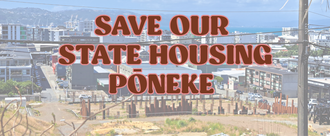
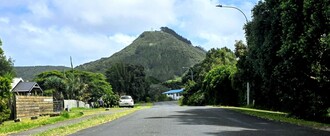
.png)




